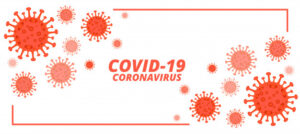Last Updated on 07/02/2021 by Khushi

The wealthier nations definitely have an upper hand in availing the vaccines against coronavirus and this has created a delay in these services being offered to the poorer nations.
“Bloomberg’s Vaccine Tracker shows 4.54 million doses were given” on an average basis, globally but this figurative representation is nowhere around an even spread of the vaccination facilities approach. Out of the 119.8 m doses that is being administered globally, 40% is being administered by the UK and the US.
In Africa, it’s just the region of Egypt, Guinea, Morocco and Seychelles that have been given any of the coronavirus vaccination at all. A major part of Central Asia and Central America is either yet to receive it or is moving at a very slow rate.
This gap between the availability and accessibility of the vaccines is likely to induce a fall in the economic progression of the emerging economies, making it much more difficult to cope up with it for a rebound. This will impact the demand for goods and the supply of the manufacturing parts in the region. All of this, plus the fact that we are already amidst a thriving battle against the coronavirus and the risk of unknown viruses can never be completely eliminated.
A study report as per a recent analysis by the International Chamber of Commerce states that the allocation of injections being far from equal could deprive the world economy of as high as $9.2 trillion.
Another research by the Rand corporation concludes that the global growth could be struck hard with a cost of $1.2 trillion this year.
As per Chief Economist Carmen Reinhart, the global growth will come down to a mere 4% of half the World Bank’s, if the distribution of vaccines does not catch up pace.
This implies that the rich nations would be under the pressure of having to share their stock of the vaccines to the needy nations. This would definitely create a segregation amongst the natives under the concern of who are and who aren’t in favour of this decision and which could a increase the chances of hoarding.
Rand’s estimation of the apparent vaccine nationalisation is that a cost of $119 billion per year could be borne by the high-incoke countries alongside a $25 billion cost of supplying it to the poorer nations.










